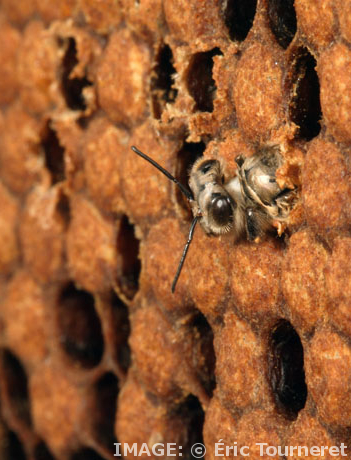Fine issued for bee sting death
 A mining contractor has been fined $60,000 over the death of a contractor who was stung by a bee.
A mining contractor has been fined $60,000 over the death of a contractor who was stung by a bee.
In February 2018, 34-year-old engineering surveyor Glenn Morton was working by himself at Iluka Resources’ Cataby mine site, about 150 kilometres north of Perth.
He was stung by a bee and managed to self-administer an EpiPen and radio for emergency assistance, but was found unconscious and unresponsive some minutes later.
He died two weeks later in hospital.
Indus Mining Services pleaded guilty in the Moora Magistrates Court to failing to provide a safe working environment in which a contracted employee was not exposed to hazards.
The company was fined $60,000 and ordered to pay $6,000 in costs on top of the fine.
Officials stated that bees were known to be prolific and a problem at the Cataby mine site.
Indus informed Iluka Resources of Mr Morton’s allergy, but failed to convey that his condition was life-threatening.
“Employers should ensure site managers are aware of the significant information in a worker's medical assessment to ensure their employees are not exposed to hazardous working environments,” said Mines Safety Director at the Department of Mines, Industry Regulation and Safety, Andrew Chaplyn.
Mr Morton’s wife Carly Morton welcomed the successful prosecution of the company, but still wants an inquest into the fatality.
“As a wife, $60,000 seems very, very low for the magnitude of what has happened with Glenn but legally if that is a fair fine then I’m pleased that that’s what happened,” she said.
She said a full inquest could uncover more information and raise awareness about the dangers of allergies.
“There are still questions about exactly transpired on the site, why the Epipen medication didn't work, where the communication breakdown happened and the coronial process would have been such an opportunity to try and find answers to those questions,” she said.
Allergy and Anaphylaxis Australia chief executive Maria Said says employers must have systems in place to protect workers.
“It is important that workplaces understand that they too have a responsibility in caring for people that disclose special medical needs,” Ms Said said.
“Once a person discloses their potentially life-threatening allergy, workplaces need to consider their allergy in whatever work they need to do.
“For someone who works, especially in a remote area, in the outdoors, that to me rings alarm bells. What processes were in place?”







 Print
Print